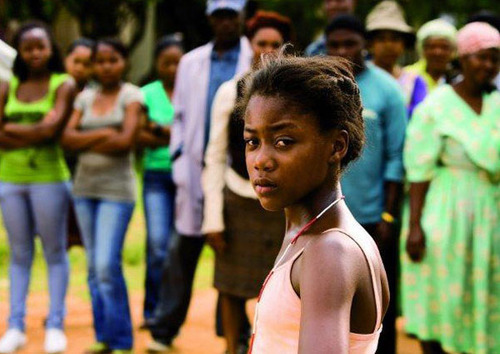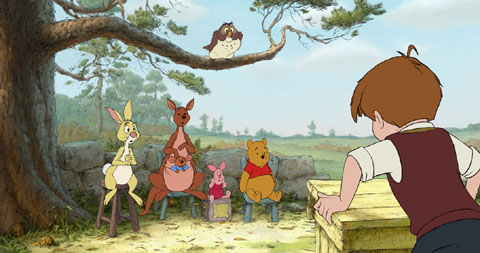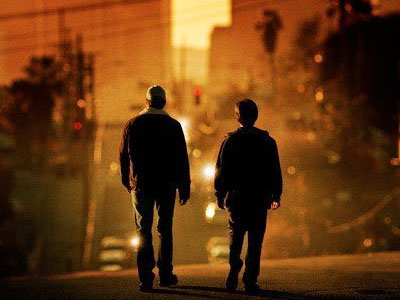 |
| Daniel Craig, Cowboys and Aliens, Dreamworks, 2011. |
A key shot from studio auteur Jon Favreau's important new popcorn flick says it all : Daniel Craig and Harrison Ford, bathed in a lovingly hushed light by ace cinematographer Matthew Libatique, each designated their places in both Hollywood and Western narrative iconography. Craig, the potent, silent but strong Brit leading man, our Western anti-hero, framed in a flame of light. Ford, the wise ancient oak, indestructible and irresistable, our Western villain, contrasted beside Craig in darkness. With one shot, Favreau tells us all that is in his heart and mind regarding his state in the artform, as a storyteller and a visionary.
Cowboys and Aliens. The title itself slaps us with the archetypes of the most American and presently neglected of film genres. Instead of cowboys and indians, we've got cowboys and aliens. Based on an imaginative graphic novel, adapted by a roomful of writers, Favreau uses his penchant for extravagant CGI and mindful plot busting to shape an awesome reinvigoration of the Western genre, by way of science fiction and horror. He is wholeheartedly glancing backwards at the westerns and sci'fi B-movies which enthralled drive-in crowds of the 1950s.
The plot deconstructs the cliches and constants of the Western, apart from the musical our country's greatest stylistic creation, and crafts a rivetingly silly otherworldly epic upon it's exquisite corpse. Craig and Ford are crucial to the shake-up and its overall impact. Craig is an ace at the strong, silent type, but the real revelation is Ford. His naturalistic acting style is overhauled here by himself and Favreau, eliciting a deeply nuanced performance as rich in it's complexities as its gravity. In the 'evil' cattle baron role usually played in the 50s by other seasoned actors, Ford cuts into the heart of the man and presents him to us quite differently than any other actor in the past. The exceptional cast is rounded out by the ethereally beautiful Olivia Wilde and a wonderful supporting flock of character actors, including Adam Beach, Keith Carradine, Paul Dano, Sam Rockwell and Clancy Brown.
Favreau utilizes his visual spaces to pay homage to not only the championed masters of the western genre, but also the lesser known 50s drive-in auteurs. Andre De Toth. Budd Boetticher, John Sturges, Henry's Hathaway and King are smiling down somewhere, proud of his creative license. Libatique utilizes several techniques he has used on the films of Darren Aronofsky, yet gives Favreau's picture a pulpy sheen of it's own. Harry Gregson-Williams' score recalls the splendor of 50s western scores by the likes of Alfred Newman, as well as the tenacity of Alan Silvestri's 80s blockbuster themes.
Metamorphosing from a schlubby straight man to a director of promise with his funny indie satire Made (2001), Favreau has shown himself to be a major director with a bright future. His love of the smart blockbuster was apparent when he made Zathura (2005), a good film which did not strike a chord with audiences. His two Iron Man films showed clever perception on the corresponding heart and bombast which ignite any super hero movie. With Cowboys and Aliens, he floors us with an epic Summer entertainment which also makes us think. The scary-plasticity of the aliens and their exploitation of the human species recall European settlers who decimated the Indians as well as Nazis incinerating Jews and taking their gold.
His Summer blockbuster as genre mash-up and socio-historical commentary is a triumph. Its science fiction elements are well done, and far more successful than the sci-fi elements of another Summer film commenting on cinema past, Super 8. With Cowboys and Aliens, Favreau has made the best studio film of the Summer, as well as his best film as a director.









